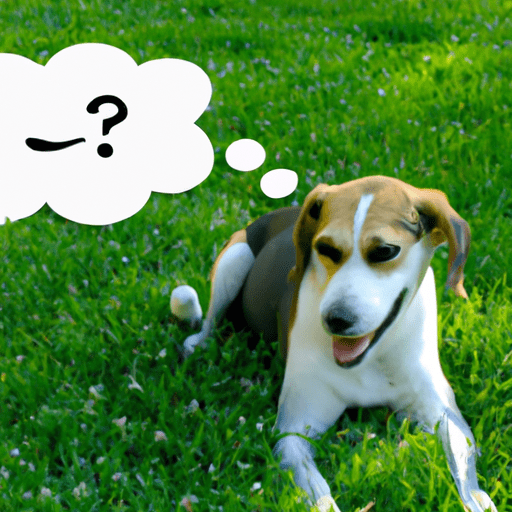You’ve probably seen your beloved canine companion munching on grass at some point and wondered why. After all, dogs are carnivores, so why would they want to eat grass? As it turns out, the answer to this question is more complex than you might think.
Table of Contents
- Dogs and Their Diet
- Common Reasons Dogs Eat Grass
- Is Grass Eating Harmful?
- How to Prevent Your Dog from Eating Grass
- Frequently Asked Questions
Key Takeaways
- Dogs eat grass for a variety of reasons, ranging from nutritional needs to behavioral issues.
- Eating grass is not inherently harmful to dogs, but it can be a sign of underlying health issues.
- There are several strategies you can use to discourage your dog from eating grass.
Dogs and Their Diet
Despite being classified as carnivores, dogs have evolved to be omnivores in practice. This means that while their primary food source is meat, they can also derive nutrients from non-meat sources, including fruits, vegetables, and yes, even grass. This article elaborates more on the dog’s diet.
Common Reasons Dogs Eat Grass
The exact reason why dogs eat grass is still a topic of debate among veterinarians and animal behaviorists. Here are a few theories:
- Nutritional Needs: Some experts believe that dogs eat grass to fulfill certain nutritional needs. Grass contains essential nutrients that a dog might not be getting from their regular diet, such as fiber, which aids digestion.
- Stomach Upset: Another theory suggests that dogs eat grass to induce vomiting when they’re feeling unwell, although this behavior is not well-documented.
- Behavioral Issues: Grass eating can also be a result of behavioral issues such as boredom or anxiety. If your dog is left alone for long periods, they might turn to grass-eating as a way to pass the time or alleviate stress.
Here’s an interesting read that delves deeper into the reasons why dogs might eat grass.
Is Grass Eating Harmful?
Generally, eating grass is not harmful to dogs. However, if your dog is eating grass frequently or in large amounts, it could be a sign of a nutritional deficiency or a digestive problem. Furthermore, grass treated with pesticides or fertilizers can be toxic to dogs.
Check out this guide on dog nutrition at OneTopDog.com to ensure your pup is getting all the nutrients they need.
How to Prevent Your Dog from Eating Grass
If your dog’s grass-eating behavior is worrying you, here are some strategies you can employ:
- Improve Your Dog’s Diet: If a nutritional deficiency is causing the grass-eating, improving your dog’s diet can help. Incorporate more fiber-rich foods into their diet and consider consulting with a vet for dietary advice.
- Increase Exercise and Mental Stimulation: If your dog is eating grass out of boredom, providing more exercise and mental stimulation can help curb this behavior.
For more tips on dog behavior, visit this page on OneTopDog.com.
Frequently Asked Questions
1. Why does my dog eat grass and then throw up?
Your dog might eat grass to induce vomiting if they’re feeling unwell. However, not all dogs throw up after eating grass. If your dog frequently vomits after eating grass, it’s a good idea to consult with a vet.
2. Is it okay for my dog to eat grass?
In general, it’s not harmful for dogs to eat grass. However, frequent or excessive grass-eating could be a sign of underlying health issues.
3. How can I stop my dog from eating grass?
Improving your dog’s diet, providing more exercise and mental stimulation, and training can help stop your dog from eating grass.
For more answers to common dog-related questions, visit this FAQ page on OneTopDog.com.
In conclusion, grass-eating is a common behavior among dogs, and while it’s not inherently harmful, it can be a sign of underlying issues. If you’re concerned about your dog’s grass-eating habits, it’s always a good idea to consult with a vet.



